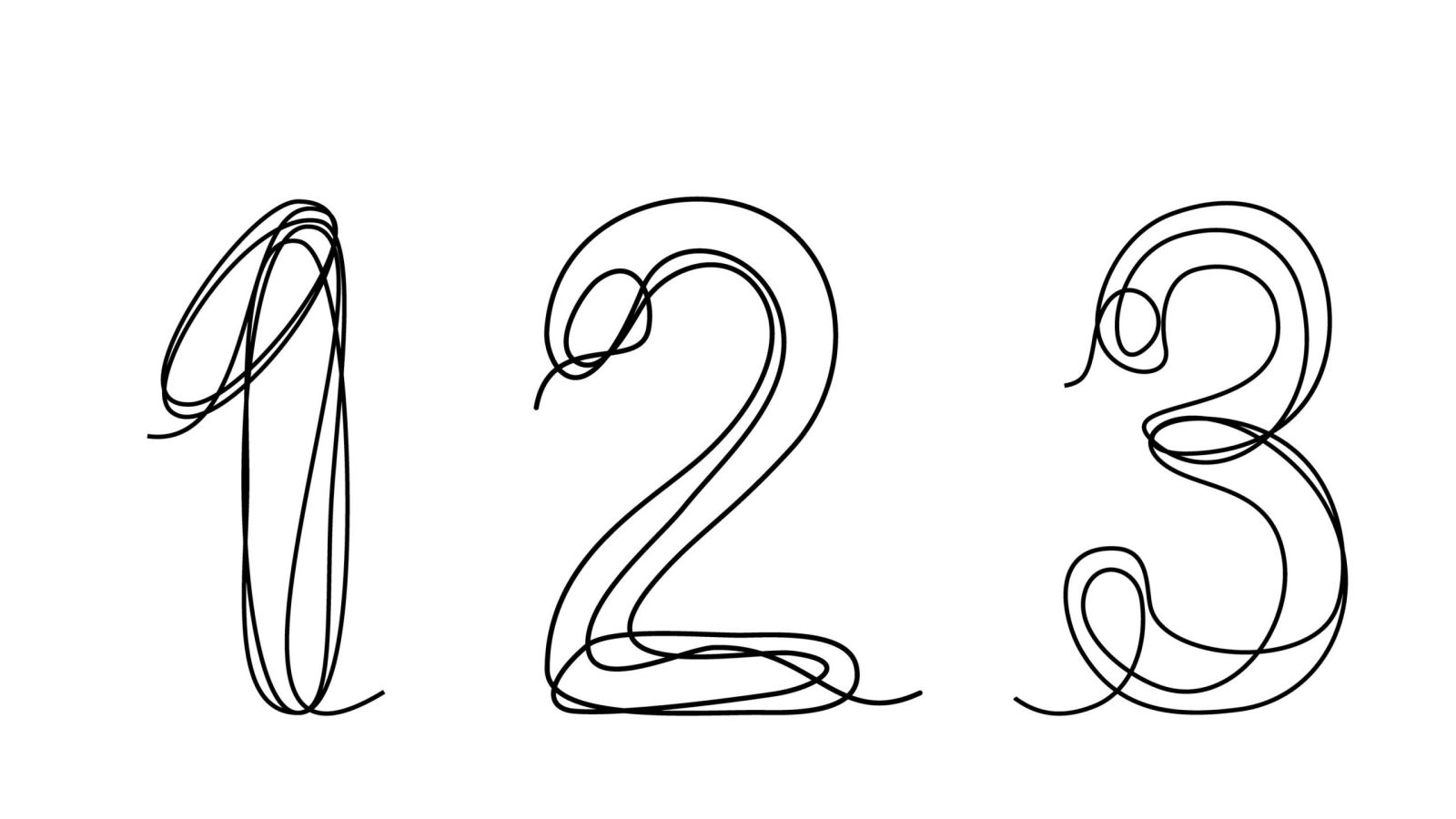((وَمَا أُمِرُوا إِلَّا لِيَعْبُدُوا اللَّـهَ مُخْلِصِينَ لَهُ الدِّينَ حُنَفَاءَ وَيُقِيمُوا الصَّلَاةَ وَيُؤْتُوا الزَّكَاةَ ۚ وَذَٰلِكَ دِينُ الْقَيِّمَةِ))
«And they were commanded not, but that they should worship Allāh, and worship none but Him alone (abstaining from ascriibng partners to Him), and perform al-ṣalāh (iqaamat us-ṣalāh) and give Zakāh: and that is the right religion.»2
He, the Most High, also stated:
((لَن يَنَالَ اللَّـهَ لُحُومُهَا وَلَا دِمَاؤُهَا وَلَـٰكِن يَنَالُهُ التَّقْوَىٰ مِنكُمْ ))
«It is neither their meat nor their blood that reaches Allāh, but it is piety from you that reaches Him.»3
He, the Most High, has said:
((قُلْ إِن تُخْفُوا مَا فِي صُدُورِكُمْ أَوْ تُبْدُوهُ يَعْلَمْهُ اللَّـهُ ))
«Say (O Muḥammad ﷺ): Whether you hide what is in your breasts or reveal it, Allāh knows it, and He knows what is in the heavens and what is in the earth. And Allāh is Able to do all things.»4
~ ** ~
Shaykh al-ʿUthaymīn (d.1421AH), may Allāh have mercy upon him, commented:
The author, may Allāh, the Most High, have mercy upon him, said: «Sincerity and Having an Intention in All Deeds and Statements, Outward and Inward.»
The place of «al-niyyah» is the heart, and it has no place upon the tongue in all acts of worship. Hence, the one who verbally utters the niyyah when he intends to pray, observe the fast, perform the Ḥajj, the ablution, or other deeds, is deemed an innovator, and he is declaring in the religion of Allāh that which is not from it.
The Prophet, may Allāh raise his rank and grant him peace, would perform the ablution, the prayer, the Ḥajj, give in charity, and observe the fast, and he would not verbally pronounce the niyyah. He would not exclaim: “O’ Allāh! I intend to perform the ablution,” “O’ Allāh! I intend to perform the prayer,” “O’ Allāh! I intend to donate charity,” “O’ Allāh! I intend to observe the fast,” and “O’ Allāh! I intend to perform the pilgrimage.” This is because the intention takes place within the heart; and Allāh, the Mighty and Majestic, is fully acquainted with what is concealed therein. Nothing is hidden from Him.
Allāh, the Most High, says:
((قُلْ إِن تُخْفُوا مَا فِي صُدُورِكُمْ أَوْ تُبْدُوهُ يَعْلَمْهُ اللَّـهُ ))
«Say (O Muḥammad ﷺ): Whether you hide what is in your breasts or reveal it, Allāh knows it.»5
Thus, a person is obligated to purify his intention solely for Allāh, the Perfect and Most High, in all his acts of worship, seeking nothing when performing them, save the Face of Allāh and the Hereafter.
This is what has been commanded by Allāh, in His Statement:
((وَمَا أُمِرُوا إِلَّا لِيَعْبُدُوا اللَّـهَ مُخْلِصِينَ لَهُ الدِّين))
«And they were commanded not, but that they should worship Allāh, and worship none but Him alone (abstaining from ascribing partners to Him).»6
Meaning: They make their deeds sincere to Allāh alone.
(( وَيُقِيمُوا الصَّلَاةَ وَيُؤْتُوا الزَّكَاةَ ۚ وَذَٰلِكَ دِينُ الْقَيِّمَةِ))
«And perform al-ṣalāh (iqamaat us-ṣalāh) and give Zakāh: and that is the right religion.»7
For example, therefore, one intends to perform the ablution; he does so sincerely for Allāh alone, and for the purpose of implementing His Command.
These are three things [that should be fulfilled]:
The intention to perform an act of worship;
The intention to perform it sincerely for Allāh alone;
The intention to perform it in compliance with the Command of Allāh.
This is the most complete situation as it pertains to the intention.
Similar to this, is the affair of the prayer.
Firstly, you intend to perform the prayer, whether it be the Duhr, ʿAṣr, Maghrib, ʿIshāʾ, or the Fajr prayer, etc.
Secondly, you intend to perform the prayer for the sake of Allāh alone, and for none besides Him. You do not perform it desiring to be noticed or heard, neither to be praised nor to obtain wealth or a worldly gain.
Thirdly, you intend to perform the prayer heeding the Command of your Lord, who Stated:
((وَأَقِمِ الصَّلَاةَ))
«And perform al-ṣalāh (iqaamat us-ṣalāh).»
((فَإِذَا اطْمَأْنَنتُمْ فَأَقِيمُوا الصَّلَاة))
«But when you are free from danger, perform al-ṣalāh (iqaamat us-ṣalāh).»
((وَأَقِيمُوا الصَّلَاةَ وَآتُوا الزَّكَاةَ))
«And perform al-ṣalāh (iqaamat us-ṣalāh), and give zakāt.»
The author, may Allāh have mercy upon him, has mentioned several verses, all of which indicate that the place of the intention is within the heart, and that Allāh, the Perfect and Most High, is Well-Aware of the servant’s intention. Perhaps an individual may perform a deed which appears to the people as righteous, whilst [in reality], it is evil, corrupted by the intention. This is because Allāh, the Most High, knows what is in the heart, and man shall not be recompensed on the Day of Judgment except for what is present therein. Allāh, the Most High, states:
((إِنَّهُ عَلَىٰ رَجْعِهِ لَقَادِرٌ ﴿٨﴾ يَوْمَ تُبْلَى السَّرَائِرُ ﴿٩﴾ فَمَا لَهُ مِن قُوَّةٍ وَلَا نَاصِرٍ))
«Verily, (Allāh) is Able to bring him back (to life)! The Day when all the secrets (deeds, prayers, fasting, etc.) will be examined (as to their truth). Then will (man) have no power, nor any helper.»8
Meaning: The Day when all the secrets shall be examined – i.e. the hearts. He stated:
((وَإِنَّهُ عَلَىٰ ذَٰلِكَ لَشَهِيدٌ وَإِنَّهُ لِحُبِّ الْخَيْرِ لَشَدِيدٌ أَفَلَا يَعْلَمُ إِذَا بُعْثِرَ مَا فِي الْقُبُورِ وَحُصِّلَ مَا فِي الصُّدُورِ))
«And to that fact he bears witness (by his deeds); and verily, he is violent in the love of wealth. Knows he not that when the contents of the graves are brought out and poured forth (all mankind is resurrected). And that which is in the breasts (of men) shall be made known.»9
In the Hereafter, the reward and the punishment of man, his deeds, and all that is given consideration is dependent on what exists in the heart.
With respect to the worldly life, however, it is the outward manifestations that are considered. So, people are dealt with based on their apparent state. If these outward manifestations are in agreement with what the heart contains, then the apparent and the hidden, the secret and the open, are sound and correct. However, if they are at variance, and the heart harbors a corrupt and mischievous intention – we seek refuge with Allāh – then how great his loss indeed!
An individual exerts, and tires himself, however, no portion will be assigned to him for the deed; as has come in an authentic ḥadīth [qudsiyy] from the Prophet, may Allāh raise his rank and grant him peace:
«Allāh, the Most High, stated: I am free from having any partners. Thus, whoever performs an action, associating in it other than Me, I have abandoned him and his deed.»10
Allāh, Allāh!! O’ brothers! The intention is to be made sincerely for Allāh, alone, the Perfect and Most High!!
Know, that the shayṭān may approach you when you desire to perform good, whispering: “You are performing this deed only to be noticed.” So, he thwarts your resolve and determination [towards good]. But pay no heed to this whispering, and do not obey it. Rather, perform the deed, even if he whispers that you only perform this deed to be noticed or to be heard. For had you been questioned about whether or not you are performing this to be seen or to be heard, you would have certainly said: “No!!”
Therefore, this whispering that the shayṭān has made to enter your heart, turn not towards it, but perform good, and say not: “I am merely doing this to be noticed.”
al-Imām al-Nawawī (d.676AH), may Allāh have mercy upon him, said:
1 – From the Commander of the Faithful Believers, Abī Hafs ʿUmar b. al-Khaṭṭāb b. Nufayl b. ʿAbd al-ʿUzza b. Riyāh b. ʿAbdillāh b. Qurt b. Razāh b. ‘Adiyy b. Kaʿb b. Luayy b. Ghālib al-Qurashiyy al-‘Adawiyy, may Allāh be pleased with him, who said: I heard the Messenger of Allāh, may Allāh raise his rank and grant him peace, say:
(( (إنَّمَا الأَعْمَالُ بِالنِّياَّتِ وَإنمَّاَ لِكُلِّ امْرِئٍ مَا نَوَى، فَمَنْ كَانَتْ هِجْرَتُهُ إِلَى اللهِ وَرَسُولِهِ فَهِجْرَتُهُ إِلَى اللهِ وَرَسُولِهِ، وَمَنْ كَانَتْ هِجْرَتُهُ لِدُنْياَ يُصِيْبُهَا أَوِ امْرَأَةٍ يَنْكِحُهَا فَهِجْرَتُهُ إِلَى مَا هَاجَرَ إِلَيْه
«Indeed, all actions are but by intentions, and every man shall have what he intended. Thus, whose ḥijrah (migration) was for Allāh and His Messenger, then his migration was for Allāh and His Messenger. And whose migration was to achieve some worldly gain or to take some woman in marriage, then his migration is for what he migrated to.»11
The authenticity of the narration if is agreed upon. It has been related by the two Imāms of the Muhadditheen in their Ṣaḥīḥs, which are the most authentic books compiled: Abū ‘ʿAbdillāh Muḥammad b. Ismāʿīl b. Ibrāhīm b. Ibn al-Mughirah b. Bardizbah al-Ju’fiyy al-Bukhārīyy, and Abū al-Husayn Muslim b. al-Ḥajjaaj b. Muslim al-Qushayriyy an-Naysaabooriyy, may Allāh be pleased with them.
~ ** ~
Shaykh al-ʿUthaymīn (d.1421AH), may Allāh have mercy upon him, continues to comment:
Since this chapter pertains to rendering the intention sincerely for Allāh, the Mighty and Majestic, and that it must be purely and solely for Allāh in every statement, in every deed, and in every circumstance – the author, may Allāh have mercy upon him, mentioned some verses and narrations that relate to this topic.
He introduced this by quoting the ḥadīth of ʿUmar b. al-Khaṭṭāb, who said: “I heard the Messenger of Allāh, may Allāh raise his rank and grant him peace, say: «Indeed, all actions are but by intentions, and every man shall have what he intended.»
The scholars, may Allāh have mercy upon them, have differed over the meaning of these two sentences:
Some scholars hold that both sentences carry the same meaning, and that the latter sentence is simply an affirmation of the first.
However, this is not correct. This is because the basic rule in speech is that it is [formed in order] to establish [principles] and not for mere emphasis alone.
Furthermore, when contemplated, it becomes evident that a great difference exists between them; for the first sentence performs the function of “cause” and the second, “of consequence.”
The First Sentence: The Prophet, may Allāh raise his rank and grant him peace, elucidated that every deed must have an intention. For every deed that an individual performs of his own free will, whilst being of sound intellect, must be founded upon an intention. It is not possible that an individual, who possesses both these elements can perform a deed, except with an intention – such that some scholars have said: “Had Allāh enjoined upon us action without intention, surely it would have been a burden that could not be fulfilled!”
This is correct. How can you perform a deed, whilst being of sound reason, of free will, and without being coerced – how can you perform it without an intention?! This is inconceivable. This is because a deed is a product of an iraadah (desire) and a qudrah (ability), and the iraadah is the intention.
The meaning of the first sentence, therefore, is that there is not a performer of a deed except that he has an intention. However, intentions do differ substantially, similar to that between the sky and the earth. From amongst man, there are those whose intention is of the highest and most elevated status, and there are those whose intention is of the most contemptible and lowly rank. To the extent that you observe two men performing an identical deed, from its commencement to its very end, during the course of the deed; its movements and its muʿmīnts of repose, its statements and its actions – and the distinction between the two is comparable to the distinction between the sky and the earth, and [doubtless] all that is due to no other than differing intentions.
So, the principle is: There is no deed performed except that it is founded upon an intention. However, intentions contrast and differ. As a consequence, he stated: «Every man shall have what he intended.» Every man shall have what he intended: If he intended Allāh and the Hereafter whilst performing his legislated deeds, he shall be granted that which he intended. If he intended a worldly matter, however, then it may be awarded to him, and it may not.
The Most High stated:
(( مَّن كَانَ يُرِيدُ الْعَاجِلَةَ عَجَّلْنَا لَهُ فِيهَا مَا نَشَاءُ لِمَن نُّرِيدُ ))
«Whoever desires for the quick-passing (transitory enjoyment of this world), We readily grant him what We will for whom We like.»12
Allāh had not said: “We readily grant him what he so wishes.” Rather, He said: «We readily grant him what We will» And certainly not what he likes; «to whom We like» it is not [granted] to every individual. He restricted what is to be granted, as well to whom it shall be granted. So, amongst man, there are those who are awarded with what they desire of this world. Then there are those who are granted but a portion of it, and those who are granted no portion at all.
With respect to:
(( وَمَنْ أَرَادَ الْآخِرَةَ وَسَعَىٰ لَهَا سَعْيَهَا وَهُوَ مُؤْمِنٌ فَأُولَـٰئِكَ كَانَ سَعْيُهُم مَّشْكُورًا ))
«…whoever desires the Hereafter and strives for it, with the necessary effort due for it (i.e. does righteous deeds of Allāh’s Obedience) while he is a believer, then such are the ones whose striving shall be appreciated (thanked and rewarded by Allāh).»13
He shall, certainly, reap the fruits of this deed which he fulfilled seeking the Face of Allāh and the Final Abode.
So «every man shall have what he intended.»
Endnotes:
(1) Ash-Shaykh Muḥammad b. Ṣāliḥ al-ʿUthaymīn, Sharḥ Rīyaḍ al-Ṣāliḥīn, 1/13-19 [Daar al-Watan, 1426 ed.].
(2) Sūrah al-Bayyinah (98):5.
(3) Sūrah al-Ḥajj (22):37.
(4) Sūrah Āl-ʿImrān (3):29.
(5) Ibid.
(6) Sūrah al-Bayyinah (98):5.
(7) Ibid.
(8) Sūrah at-Taariq (86):8-10.
(9) Sūrah al-‘Aadiyaat (100):7.
(10) Related by Muslim (2985), Book of Asceticism and Heart Softeners, Chapter: Man Ashraka fi ‘Amalihi Ghayr Allāh.
(11) Related by al-Bukhārī (1), Book of Revelation, Chapter: How the Divine Revelation Started Being Revealed to Allāh’s Messenger, may Allāh raise his rank and grant him peace; and by Muslim (1907), Book of al-Jihād, Chapter: His Statement, may Allāh raise his rank and grant him peace: «Indeed, All Actions Are But By Intentions.»
(12) Sūrah al-Isrāʾ. (17):18.
(13) Sūrah al-Isrāʾ. (17):19.
Translated by: Umm Sufyān Fāṭimah



















